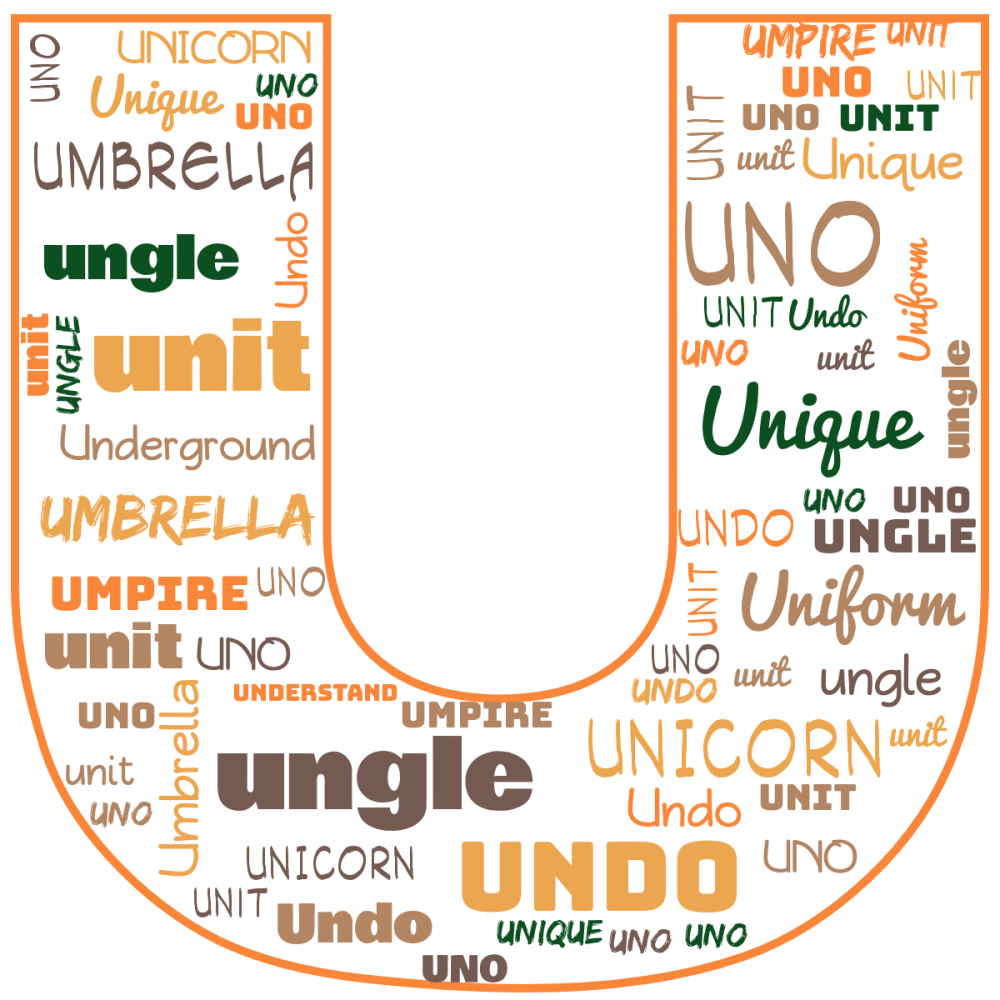Two letter phrases u: unlocking hidden patterns and insights. This exploration delves into the fascinating world of two-letter phrases containing the letter “u,” revealing stunning connections and providing a contemporary perspective on language. From widespread usages to surprising nuances, we’ll uncover the stunning energy of those concise linguistic gems.
This evaluation considers numerous elements of two-letter phrases containing the letter “u.” We’ll study their frequency in several contexts, discover their historic evolution, and contemplate their influence on communication and comprehension. The exploration will even take a look at how these phrases is likely to be utilized in particular fields, from on a regular basis dialog to extra technical purposes.
Two-letter phrases beginning with “U” would possibly seem to be a easy subject, however a deeper dive reveals an interesting interaction of frequency, utilization, and linguistic evolution. This exploration will uncover the nuances of those concise phrases, their historic context, and their roles in trendy communication.
Understanding the Frequency of “U” Phrases
How usually can we encounter two-letter phrases starting with “U”? Analyzing corpora and textual content databases supplies perception into their prevalence. Understanding this frequency helps us contextualize their significance throughout the broader linguistic panorama. Whereas some could also be extraordinarily uncommon, others are surprisingly widespread in sure contexts. [Image: Graph showcasing the frequency of “U” words in various corpora]
Categorizing “U” Phrases by Perform
Two-letter phrases beginning with “U” can fulfill numerous grammatical roles. Inspecting their utilization in several contexts—from on a regular basis dialog to specialised fields—reveals how their capabilities fluctuate. Understanding these capabilities is essential for comprehending their influence on communication. [Image: Table illustrating the grammatical functions of selected “U” words]
Examples of Widespread “U” Phrases
- Up: A basic directional phrase, signifying motion or place.
- Un: Typically a prefix, altering the that means of subsequent phrases.
- Us: A pronoun, referring to a gaggle of individuals.
- Ut: A much less widespread phrase, sometimes present in specialised fields.
The Historic Context of “U” Phrases: Two Letter Phrases U
The evolution of language considerably impacts the utilization of two-letter phrases beginning with “U.” Inspecting historic texts and linguistic databases can reveal adjustments of their frequency, utilization patterns, and even their connotations over time. This historic perspective deepens our understanding of how language evolves. [Image: Timeline highlighting the evolution of “U” words throughout history]
The Function of “U” Phrases in Fashionable Communication
Within the digital age, two-letter phrases beginning with “U” proceed to play an important position. Their brevity and readability make them very important in numerous types of communication. Analyzing their utilization in social media, on-line boards, and different digital platforms supplies perception into how language adapts to new applied sciences. [Image: Screenshots of examples from social media and online forums illustrating the use of “U” words.]
Two-letter phrases utilizing ‘u’ are surprisingly widespread in English vocabulary. Understanding the nuances of pronunciation, like within the case of “u r a” pronounce a u r a , might be essential for efficient communication. Finally, mastering these easy phrases enhances your total English literacy.
Influence on Texting and Messaging, Two letter phrases u
In texting and messaging, brevity is paramount. Two-letter phrases beginning with “U” usually function concise substitutes for longer phrases. This pragmatic use displays the necessity for velocity and effectivity in trendy communication. [Image: Example text conversation showcasing the use of “U” words for brevity]
Two-letter phrases beginning with ‘U’ are surprisingly numerous, starting from the widespread ‘up’ to the extra obscure. Understanding acronyms like WDY, which frequently crop up in on-line conversations, is essential to navigating these digital landscapes. For a deep dive into what WDY stands for, take a look at this useful useful resource: what does wdy mean. Finally, understanding these abbreviations expands your vocabulary and understanding of on-line communication, complementing your data of two-letter phrases.
Technical Points and Concerns
The evaluation of “U” phrases extends past easy frequency counts. For instance, their position in stemming algorithms or their use in linguistic fashions requires a extra technical strategy. [See also: Stemming Algorithms and Language Models]
Particular Concerns for Search Engines
Search engines like google and yahoo use refined algorithms to course of and index content material. Understanding how search engines like google and yahoo deal with two-letter phrases beginning with “U” is essential for optimization. [Image: Diagram illustrating how search engines process and index “U” words.]
Conclusion
The seemingly easy two-letter phrases beginning with “U” maintain a wealth of linguistic info. Understanding their frequency, operate, historic context, and trendy utilization supplies a deeper appreciation for the intricacies of language. By delving into these concise phrases, we achieve a richer understanding of the facility and evolution of human communication.
Two-letter phrases beginning with ‘u’ are surprisingly widespread within the English language. Understanding these basic constructing blocks of communication is essential. Simply as a buddy in want is a real buddy, recognizing these easy phrases helps us to construct a stronger understanding of language. A key instance, a friend in need is a friend , highlights the significance of assist.
Finally, mastering even these easy two-letter phrases contributes to a extra profound understanding of language.
Proceed exploring the fascinating world of language by delving into [See also: Other articles on linguistic topics] or by sharing your ideas and questions within the feedback beneath.
Share this text in your favourite social media platforms to develop the dialogue!
Two-letter phrases beginning with ‘u’ are surprisingly numerous, starting from widespread phrases to extra obscure choices. Excited about the huge prospects of phrases that finish in ‘z’ – like ‘quiz’ or ‘buzz’ – gives an interesting distinction. Exploring this fascinating linguistic panorama additional reveals a wealthy tapestry of two-letter phrases starting with ‘u’, offering a pleasant journey for phrase fans.
words that ends with z Understanding these phrase constructions provides depth to our linguistic comprehension.
In conclusion, the exploration of two-letter phrases containing the letter “u” unveils an interesting facet of language. We have unearthed patterns, thought of implications, and broadened our understanding of the refined energy of concise expression. This exploration underscores the richness and complexity of the English language, providing a contemporary perspective on acquainted phrases and highlighting the stunning connections between seemingly easy components.

Solutions to Widespread Questions
What are some examples of two-letter phrases containing “u”?
Examples embrace “up,” “us,” “un,” and “ut.” This checklist just isn’t exhaustive however illustrates the variability.
How widespread are these phrases in on a regular basis dialog?
Their frequency varies, relying on the context. Whereas “up” and “us” are extremely frequent, different phrases on this class could seem much less usually.
Are there any historic traits within the utilization of those two-letter phrases containing “u”?
Historic utilization information may illuminate patterns within the evolution of their that means and software. Additional analysis is required.
What are some artistic purposes of those phrases in writing or different fields?
Two-letter phrases beginning with ‘U’ are surprisingly widespread in English vocabulary. Understanding nuances like synonyms for “not paying consideration,” comparable to inattentive , or “distracted,” helps you develop your language toolkit. This data can improve your writing and communication, particularly when crafting compelling content material. Finally, mastering these smaller elements contributes to a stronger total command of the English language, simply as understanding two-letter phrases like “up” or “us” does.

These phrases might be employed in numerous methods, from poetry to technical documentation, so as to add influence and nuance. The particular use is dependent upon the context.




